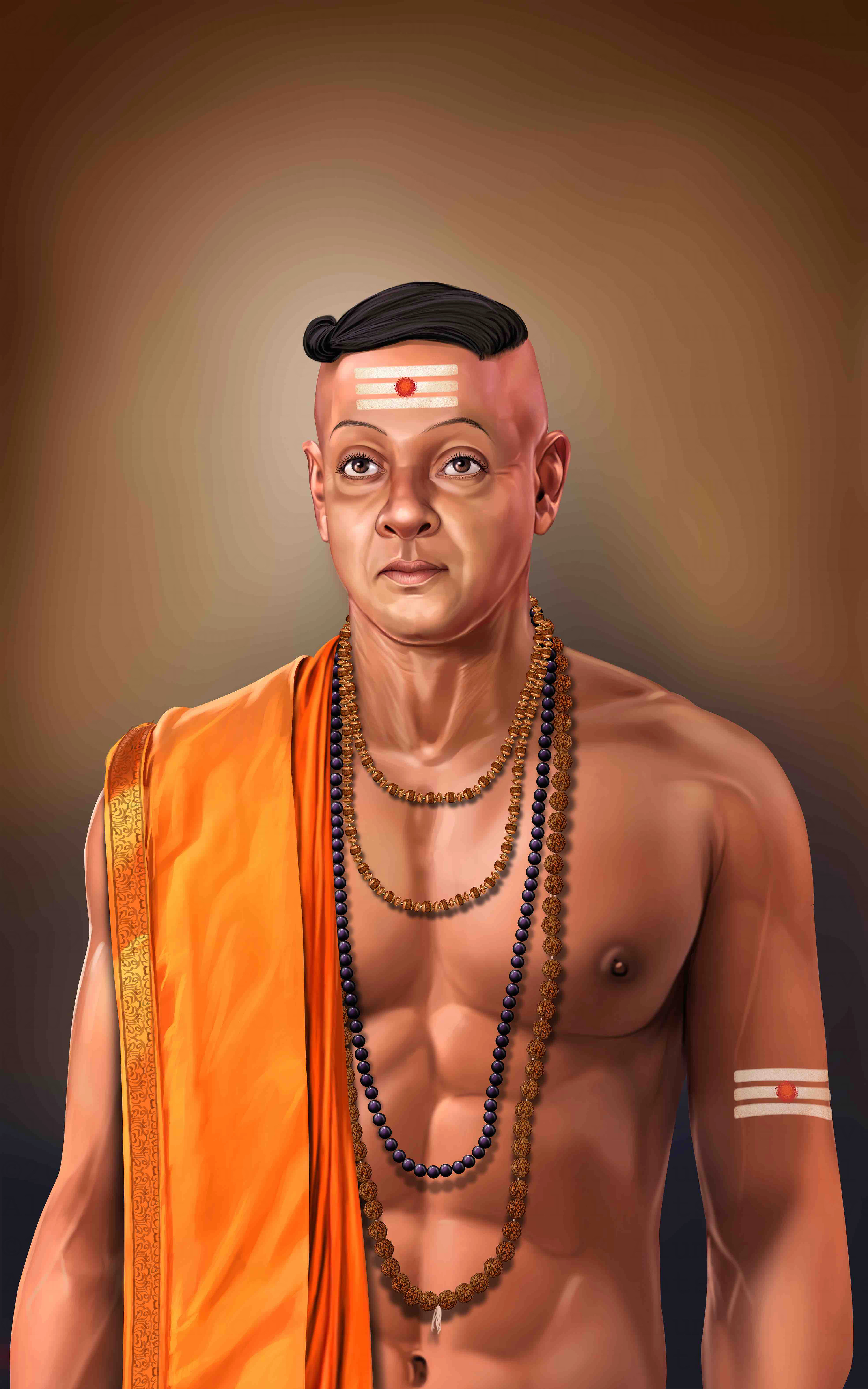

. . .
(Arattuppuzha Velayudha Panicker was a member of the Kallisheril family. He is NOT a member of the Alummoottil family by blood. He is a relative only through marriage. ആറാട്ടുപുഴ വേലായുധ പണിക്കർ കല്ലിശേരിൽ കുടുംബാംഗമായിരുന്നു. അദ്ദേഹത്തിന് ആലുംമൂട്ടിൽ കുടുംബവുമായി രക്തബന്ധം ഇല്ല. അദ്ദേഹം വിവാഹത്തിലൂടെ മാത്രം ആലുംമൂട്ടിൽ കുടുംബത്തിലെ ബന്ധുവാണ്.)
Panicker was an ezhava warrior who lived in 19th century (1825-1874). 19-താം നൂറ്റാണ്ടിൽ (1825-1874) ജീവിച്ചിരുന്ന ഒരു ഈഴവ യോദ്ധാവായിരുന്നു പണിക്കർ.

Arattupuzha Velayudha Panicker is a much forgotten Ezhava warrior who pioneered the ezhava / thiyya revolution against the so called "upper" castes in Kerala. Many progressive movements spearheaded by him are well recorded in Kerala history. However, due to vested interests he has never gained the popularity that he rightfully deserves.
Born in 1825 as Kalisseril Velayutha Chekavar at the Kaalisseril Tharavadu in Arattupuzha, Karthikappally Taluk, Alappuzha, Kerala, he grew up to a fierce warrior unequalled in valor, courage, and martial traditions. His martial arts techniques skills included techniques from ‘Tulunadan Adavukal’ which were unknown in the southern form of Kalaripayattu.
Although both his parents died in his young age, Panicker brilliantly mastered Astrology, Ayurveda and Sanskrit. Impressed by his gallantry, in 1845 the maharaja of Travancore bestowed upon him the title of “Panickan”, usually only given to the so called “savaranas”.
Being an excellent swimmer, he was an expert in underwater offensive attacks against enemies. The Kalari form that he practiced is the southern style (Thekkan). He was also an expert equestrian who was brought up in the discipline of guerilla warfare (Olipor). അദ്ദേഹം ജലാന്തരണീയമായ ആക്രമണങ്ങളിൽ വിദഗ്ധനായിരുന്നു. തെക്കൻ ശൈലി കളരി യുദ്ധത്തിൽ പ്രഗത്ഭനും, ഗറില്ല യുദ്ധത്തിലും (ഒളിപോർ), കുതിരസവാരിയിലും സമർത്ഥനായിരുന്നു.
(Courtesy: Unknown - Please lay claims, if any)
In 1866, a year before the publication of Das Capital by Karl Marx, Velayudha Panicker spearheaded the first agricultural labor strike in Kerala, against the upper caste land owners. Still (luckily) no one has called him a "Comrade" or "Sakhavu" till date.
1866ല് കര്ഷക തൊഴിലാളികളെ സംഘടിപ്പിച്ചു വേലായുധ പണിക്കര് നടത്തിയ പണിമുടക്കാണു ചരിത്രത്തില് രേഖപ്പെടുത്തിയ ആദ്യത്തെ കര്ഷക തൊഴിലാളി സമരം. എന്നിട്ടും ഇതുവരെ വേലായുധപണിക്കരെ ആരും ‘സഖാവെ’ എന്നു വിളിച്ചില്ല.
During those days, it was unacceptable for Ezhava ladies to wear clothing that would cover below their knees. In north Kayamkulam, next to Pathiyoor, an Ezhava lady who was walking on the path within the paddy fields, was verbally abused in public by an upper caste landlord, for wearing a wide bordered dothi beneath her knees. This incident was observed and reported to Panicker by the laborers. Panicker promptly unified them and requested them to stop both the work on the paddy fields and the coconut groves.
അന്ന് ഈഴവ സ്ത്രീകള് മുണ്ടുടുക്കുമ്പോള് മുട്ടിനു താഴെ തുണികിടക്കുന്നതു കുറ്റമായിരുന്നു. കായം കുളത്തിനു വടക്കു പത്തിയൂരില് വീതിയുള്ള കരയുള്ള മുണ്ട് ഇറക്കിയുടുത്തു വയല് വരമ്പിലൂടെ നീങ്ങിയ ഈഴവ സ്ത്രീയെ സവര്ണ പ്രമാണിമാര് അധിക്ഷേപിച്ചതു പണിക്കരെ ചൊടിപ്പിച്ചു.ജന്മികള്ക്കു വേണ്ടി കീഴാളരെ ഒരുമിപ്പിച്ചു കൂട്ടിയ വേലായുധപണിക്കര് കൃഷിപണിയും തേങ്ങാപണിയും ബഹിഷ്ക്കരിക്കാന് ആഹ്വാനം ചെയ്തു.
Once the strike went into effect, it affected the financial situation of the landlords. Meanwhile, Panicker paid a subsistance allowance to the laborers from his own pocket. Panicker also publicly declared that he will kill any laborers that the landlords brought from outside the locality. As the strike reached its climax, the landlord who was responsible for insulting the ezhava lady was forced to render a public apology to the lady.
പണി മുടങ്ങിയതോടെ ജന്മിമാരുടെ സാമ്പത്തിക നില പരുങ്ങലിലായി. തൊഴിലാളികള്ക്ക് അഷ്ടിക്കുള്ള വക പണിക്കര് സ്വന്തം ചെലവില് നല്കി. ദൂരെ നിന്ന് ജന്മികളെത്തിച്ച കൃഷിപ്പണിക്കാരെ കൊന്നുകളയുമെന്ന് പണിക്കര് പരസ്യപ്രഖ്യാപനം നടത്തി. മുണ്ട് ഇറക്കിയുടുത്ത ഈഴവ സ്ത്രീയെ പരിഹസിച്ച കര പ്രമാണിമാര് സമരം തീഷ്ണമായപ്പോള് പരസ്യമായി മാപ്പു പറഞ്ഞു.
Panicker then ordered the perpetrator to buy a dhoti for the insulted Ezhava lady. The landlord promptly obeyed. Thus the first agricultural strike was a 100% success. Still history has never referred to Panicker as a comrade.
അവഹേളിക്കപ്പെട്ട സ്ത്രീക്കു പ്രായശ്ചിത്തമായി മുണ്ടു വാങ്ങിക്കൊടുക്കാന് പണിക്കര് കല്പ്പിച്ചു. പ്രമാണിമാര് അനുസരിച്ചു. അങ്ങനെ ചരിത്രത്തില് ആദ്യത്തെ കര്ഷകതിഴിലാളി സമരം പൂര്ണ്ണ വിജയം കണ്ടു. എന്നിട്ടും ചരിത്രം ഇതുവരെ പണിക്കരെ സഖാവേ എന്നുവിളിച്ചില്ല.
TAIL END: It is only a matter of time, that once the comrades of Kerala hear this story, will adopt Panicker as "their own comrade" and place his picture alongside Sree Narayana Gurudevan's pictures on their party banners to promote their events.
. . .
